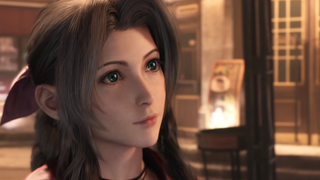Square Enix announces it's tanked $140 million in losses due to 'content abandonment', though there's no clue as to what's been dropped—and where
Mid-life crisis (core).

In a continuation of Square Enix's promise to review its development processes "from scratch", the gaming giant best known for Final Fantasy announced it was expecting massive losses in a warning to investors yesterday.
"... in light of the myriad changes underway in the environment surrounding its Group," the statement reads, Square Enix plans to "revise the Group’s approach to the development of high-definition (HD) games with the intention of being more selective and focused in the allocation of development resources. As a result of a close examination of the Group’s development pipeline undertaken in keeping with this revised approach, the Company expects to recognize approximately ¥22.1 billion [approximately $140 million] in content abandonment losses on its books for the fiscal year ended March 2024."
While the statement itself doesn't reveal exactly what "content" has been left out to dry, we can apply some thorough speculation to the matter. In January of this year, the company's new CEO Takashi Kiryu said he'd like to "ensure higher quality from each title by slimming down our lineup," specifically calling out the development of "a wide variety of titles" as "splintering" Square Enix's resources.
As my fellow PC Gamer writer Wes Fenlon pointed out back then, the company's had a glut of not-so-great games that'd fit that particular bill in the past handful of years. Ranging from games that showed some form of potential like Marvel's Avengers and Forespoken to, uh, Balan Wonderworld, and whatever the hell Symbiogenesis is.
I've got my fingers crossed that Kiryu's finally dropped his bizarre fascination with AI and, dare I hope, NFTs—but I'm not crossing them that hard. Even if Square Enix keeps messing around with that stuff on the side, this $140 million write-off likely has more to do with its priorities for "high-definition" development and thinning out its slate of mid-budget games that are unlikely to deliver big returns. In early April the company replaced a veteran Dragon Quest producer, indicating it's taking a serious look at how all of its key game series are being handled.
The decision could also be related to Final Fantasy 7: Rebirth's performance, but that seems less likely. Back in mid-April, analyst Daniel Ahmad observed that the sequel to the monstrously-popular first instalment was reportedly selling about "half of what Remake sold in the same timeframe." I'm not sure that's unexpected, though— FF7 Remake not only came out during the Covid-19 pandemic, it was the first in the trilogy of remakes of a beloved RPG and launched on a console with more than 100 million owners. Its numbers were bound to be buoyed by those factors. Then again, it wouldn't be the first time a company believed the hype of its initial success and overspent on a sequel.
Either way—Square Enix is, uh, going through a phase. Here's hoping it figures things out, not just because it happens to run one of my favourite MMOs (and I really would like Dawntrail to be good), but because it'd be a shame to lose such a gaming staple to corporate shenanigans and ill-advised investments.
The biggest gaming news, reviews and hardware deals
Keep up to date with the most important stories and the best deals, as picked by the PC Gamer team.

Harvey's history with games started when he first begged his parents for a World of Warcraft subscription aged 12, though he's since been cursed with Final Fantasy 14-brain and a huge crush on G'raha Tia. He made his start as a freelancer, writing for websites like Techradar, The Escapist, Dicebreaker, The Gamer, Into the Spine—and of course, PC Gamer. He'll sink his teeth into anything that looks interesting, though he has a soft spot for RPGs, soulslikes, roguelikes, deckbuilders, MMOs, and weird indie titles. He also plays a shelf load of TTRPGs in his offline time. Don't ask him what his favourite system is, he has too many.
Most Popular


